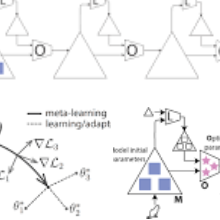Learning-based behavior prediction methods are increasingly being deployed in real-world autonomous systems, e.g., in fleets of self-driving vehicles, which are beginning to commercially operate in major cities across the world. Despite their advancements, however, the vast majority of prediction systems are specialized to a set of well-explored geographic regions or operational design domains, complicating deployment to additional cities, countries, or continents. Towards this end, we present a novel method for efficiently adapting behavior prediction models to new environments. Our approach leverages recent advances in meta-learning, specifically Bayesian regression, to augment existing behavior prediction models with an adaptive layer that enables efficient domain transfer via offline fine-tuning, online adaptation, or both. Experiments across multiple real-world datasets demonstrate that our method can efficiently adapt to a variety of unseen environments.
翻译:以学习为基础的行为预测方法正越来越多地用于现实世界自主系统,例如自驾车辆车队,这些车辆已开始在全世界主要城市进行商业运营。尽管取得了进步,但绝大多数的预测系统都专门用于一系列探索良好的地理区域或业务设计领域,使向更多城市、国家或大陆的部署工作复杂化。为此,我们提出了一个新方法,以便有效地将行为预测模型适应新的环境。我们的方法利用了元学习的最新进展,特别是巴耶西亚回归,用适应性层次扩大现有行为预测模型,通过离线微调、在线适应或两者,使高效域转移。 跨多个现实世界数据集的实验表明,我们的方法能够有效地适应各种看不见的环境。




